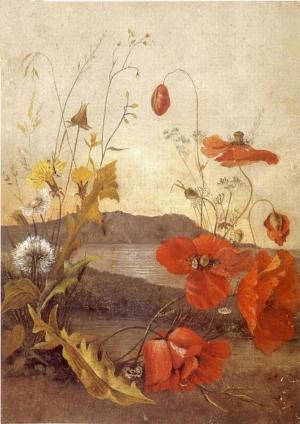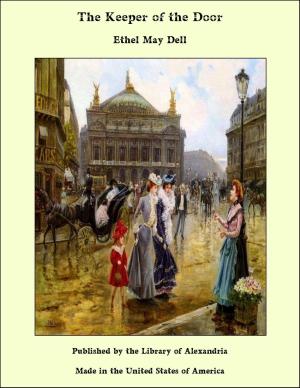The English Gipsies and Their Language
Nonfiction, Religion & Spirituality, New Age, History, Fiction & Literature| Author: | Charles Godfrey Leland | ISBN: | 9781465606426 |
| Publisher: | Library of Alexandria | Publication: | March 8, 2015 |
| Imprint: | Language: | English |
| Author: | Charles Godfrey Leland |
| ISBN: | 9781465606426 |
| Publisher: | Library of Alexandria |
| Publication: | March 8, 2015 |
| Imprint: | |
| Language: | English |
For go where you will, though you may not know it, you encounter at every step, in one form or the other, the Rommany. True, the dwellers in tents are becoming few and far between, because the “close cultivation” of the present generation, which has enclosed nearly all the waste land in England, has left no spot in many a day’s journey, where “the travellers,” as they call themselves, can light the fire and boil the kettle undisturbed. There is almost “no tan to hatch,” or place to stay in. So it has come to pass, that those among them who cannot settle down like unto the Gentiles, have gone across the Great Water to America, which is their true Canaan, where they flourish mightily, the more enterprising making a good thing of it, by prastering graias or “running horses,” or trading in them, while the idler or more moral ones, pick up their living as easily as a mouse in a cheese, on the endless roads and in the forests. And so many of them have gone there, that I am sure the child is now born, to whom the sight of a real old-fashioned gipsy will be as rare in England as a Sioux or Pawnee warrior in the streets of New York or Philadelphia. But there is a modified and yet real Rommany-dom, which lives and will live with great vigour, so long as a regularly organised nomadic class exists on our roads—and it is the true nature and inner life of this class which has remained for ages, an impenetrable mystery to the world at large. A member of it may be a tramp and a beggar, the proprietor of some valuable travelling show, a horse-dealer, or a tinker. He may be eloquent, as a Cheap Jack, noisy as a Punch, or musical with a fiddle at fairs. He may “peddle” pottery, make and sell skewers and clothes-pegs, or vend baskets in a caravan; he may keep cock-shys and Aunt Sallys at races. But whatever he may be, depend upon it, reader, that among those who follow these and similar callings which he represents, are literally many thousands who, unsuspected by the Gorgios, are known to one another, and who still speak among themselves, more or less, that curious old tongue which the researches of the greatest living philologists have indicated, is in all probability not merely allied to Sanscrit, but perhaps in point of age, an elder though vagabond sister or cousin of that ancient language. For THE ROMMANY is the characteristic leaven of all the real tramp life and nomadic callings of Great Britain. And by this word I mean not the language alone, which is regarded, however, as a test of superior knowledge of “the roads,” but a curious inner life and freemasonry of secret intelligence, ties of blood and information, useful to a class who have much in common with one another, and very little in common with the settled tradesman or worthy citizen. The hawker whom you meet, and whose blue eyes and light hair indicate no trace of Oriental blood, may not be a churdo, or pāsh-ratt, or half-blood, or half-scrag, as a full Gipsy might contemptuously term him, but he may be, of his kind, a quadroon or octoroon, or he may have “gipsified,” by marrying a Gipsy wife; and by the way be it said, such women make by far the best wives to be found among English itinerants, and the best suited for “a traveller.” But in any case he has taken pains to pick up all the Gipsy he can. If he is a tinker, he knows Kennick, or cant, or thieves’ slang by nature, but the Rommany, which has very few words in common with the former, is the true language of the mysteries; in fact, it has with him become, strangely enough, what it was originally, a sort of sacred Sanscrit, known only to the Brahmins of the roads, compared to which the other language is only commonplace Prakrit, which anybody may acquire.
For go where you will, though you may not know it, you encounter at every step, in one form or the other, the Rommany. True, the dwellers in tents are becoming few and far between, because the “close cultivation” of the present generation, which has enclosed nearly all the waste land in England, has left no spot in many a day’s journey, where “the travellers,” as they call themselves, can light the fire and boil the kettle undisturbed. There is almost “no tan to hatch,” or place to stay in. So it has come to pass, that those among them who cannot settle down like unto the Gentiles, have gone across the Great Water to America, which is their true Canaan, where they flourish mightily, the more enterprising making a good thing of it, by prastering graias or “running horses,” or trading in them, while the idler or more moral ones, pick up their living as easily as a mouse in a cheese, on the endless roads and in the forests. And so many of them have gone there, that I am sure the child is now born, to whom the sight of a real old-fashioned gipsy will be as rare in England as a Sioux or Pawnee warrior in the streets of New York or Philadelphia. But there is a modified and yet real Rommany-dom, which lives and will live with great vigour, so long as a regularly organised nomadic class exists on our roads—and it is the true nature and inner life of this class which has remained for ages, an impenetrable mystery to the world at large. A member of it may be a tramp and a beggar, the proprietor of some valuable travelling show, a horse-dealer, or a tinker. He may be eloquent, as a Cheap Jack, noisy as a Punch, or musical with a fiddle at fairs. He may “peddle” pottery, make and sell skewers and clothes-pegs, or vend baskets in a caravan; he may keep cock-shys and Aunt Sallys at races. But whatever he may be, depend upon it, reader, that among those who follow these and similar callings which he represents, are literally many thousands who, unsuspected by the Gorgios, are known to one another, and who still speak among themselves, more or less, that curious old tongue which the researches of the greatest living philologists have indicated, is in all probability not merely allied to Sanscrit, but perhaps in point of age, an elder though vagabond sister or cousin of that ancient language. For THE ROMMANY is the characteristic leaven of all the real tramp life and nomadic callings of Great Britain. And by this word I mean not the language alone, which is regarded, however, as a test of superior knowledge of “the roads,” but a curious inner life and freemasonry of secret intelligence, ties of blood and information, useful to a class who have much in common with one another, and very little in common with the settled tradesman or worthy citizen. The hawker whom you meet, and whose blue eyes and light hair indicate no trace of Oriental blood, may not be a churdo, or pāsh-ratt, or half-blood, or half-scrag, as a full Gipsy might contemptuously term him, but he may be, of his kind, a quadroon or octoroon, or he may have “gipsified,” by marrying a Gipsy wife; and by the way be it said, such women make by far the best wives to be found among English itinerants, and the best suited for “a traveller.” But in any case he has taken pains to pick up all the Gipsy he can. If he is a tinker, he knows Kennick, or cant, or thieves’ slang by nature, but the Rommany, which has very few words in common with the former, is the true language of the mysteries; in fact, it has with him become, strangely enough, what it was originally, a sort of sacred Sanscrit, known only to the Brahmins of the roads, compared to which the other language is only commonplace Prakrit, which anybody may acquire.















